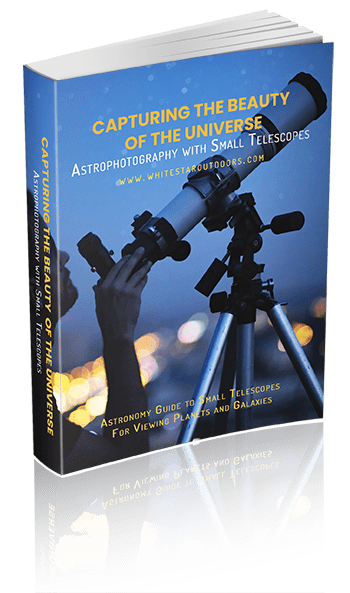Introduction:
In this comprehensive guide to Astronomy for Beginners, we’ll delve into the essentials of stargazing, equipping you with the knowledge and resources needed to kickstart your astronomical journey. From understanding the basics of telescopes to exploring the wonders of the night sky, let’s embark together on a celestial odyssey that will ignite your passion for the cosmos.
Embarking on a journey through the cosmos is a thrilling adventure, a voyage of wonder and discovery. For those taking their first steps into the world of astronomy, the vast expanse of the universe can seem overwhelming. But fear not, for with the proper guidance and tools, the mysteries of the night sky can be unlocked, revealing a breathtaking tapestry of stars, planets, and celestial wonders.
At the heart of every astronomer’s toolkit lies the telescope – a powerful instrument that serves as our window to the universe. When it comes to selecting the perfect telescope for beginners, it’s essential to consider factors such as aperture, magnification, and portability.
Understanding these specifications can seem daunting at first, but it’s crucial for making an informed decision. Let’s break them down:
Astronomy for Beginners: Choosing the Right Telescope
Selecting the perfect telescope for your astronomical journey is a pivotal decision that can significantly influence your stargazing experience. For beginners, it’s crucial to find a telescope that strikes a balance between performance, ease of use, and affordability.
- Celestron Telescopes a world renown brand
Let’s explore some of the best telescopes for beginners and their key features:
Refractor Telescopes:
- Best for: Novice astronomers seeking simplicity and clarity.
- Key Features: Refractor telescopes use lenses to gather and focus light, resulting in crisp and clear images. They are typically easy to set up and maintain, making them ideal for beginners. Look for refractors with a moderate aperture (around 70mm to 90mm) to ensure sufficient light-gathering power for observing celestial objects.
Reflector Telescopes:
- Best for Beginners interested in observing faint celestial objects such as galaxies and nebulae.
- Key Features: Reflector telescopes utilize mirrors to collect and reflect light, offering excellent light-gathering capabilities. While they may require slightly more maintenance than refractors, reflectors often provide superior views of deep-sky objects. Consider opting for a Dobsonian-style reflector, which combines a large aperture with a simple, user-friendly design.
Compound Telescopes (Catadioptric):
- Best for: Beginners seeking versatility and portability.
- Key Features: Compound telescopes, also known as catadioptric telescopes, combine the optical elements of refractor and reflector designs to achieve a compact and versatile form factor. They typically feature a folded optical path, allowing for a longer focal length in a shorter tube length. Compound telescopes are well-suited for astrophotography and can be easily transported to different observing locations.
When choosing the best telescope for beginners, consider factors such as aperture size, magnification capabilities, and portability. Opt for a telescope with a moderate aperture (around 70mm to 114mm) to ensure sufficient light-gathering power for observing a variety of celestial objects. Additionally, prioritize telescopes with user-friendly features such as adjustable mounts, smooth focusing mechanisms, and intuitive controls.
Before making a purchase, it’s essential to research and compare different telescope models, read reviews from other beginners, and consult with experienced astronomers for recommendations. To get you started, here are some reputable telescope brands that are known for their quality and performance:
Celestron
Sky-Watcher
Explore Scientific
Remember that the best telescope for you is one that aligns with your interests, budget, and observing goals.
Investing in a high-quality telescope is the first step towards unlocking the wonders of the universe. With the right equipment and a sense of curiosity, beginners can embark on a journey of exploration and discovery that will enrich their lives and deepen their appreciation for the cosmos.
The key to choosing the right telescope for beginners lies in finding a balance between performance and ease of use. Refractor telescopes, with their sleek design and simple operation, are ideal for novice astronomers seeking clarity and ease of use. Meanwhile, reflector telescopes offer excellent light-gathering capabilities, making them well-suited for observing faint celestial objects such as galaxies and nebulae.
Exploring the Night Sky: Tips for Novice Stargazers
Armed with your chosen telescope, it’s time to embark on your first stargazing adventure. Begin by familiarizing yourself with the night sky and identifying prominent constellations such as Orion and the Big Dipper. Utilize star charts and astronomy apps to navigate the heavens with ease, and remember to pack a red flashlight to preserve your night vision while observing. However, one factor that can significantly impact your stargazing experience is the weather. Let’s explore how different weather conditions can affect your observations and what you can do to adapt:
Venturing into the enchanting realm of stargazing is an exhilarating experience filled with wonder and discovery. As a novice stargazer, navigating the night sky may seem daunting at first, but fear not – with a few helpful tips and tricks, you’ll soon be exploring the cosmos like a seasoned astronomer. However, it’s important to remember that stargazing is a hobby that requires patience and persistence. Let’s explore why these qualities are crucial and how they can enhance your stargazing experiences:
- Teenage girl is using the astronomy telescope to observe the the stars at cold winter night.
Here are some invaluable tips to enhance your stargazing adventures in astronomy for beginners
Get Acquainted with the Night Sky:
- Before heading out for a night of stargazing, take some time to familiarize yourself with the constellations and celestial landmarks visible in your area. Invest in a star chart, astronomy app, or planisphere to help identify prominent stars, planets, and constellations.
Choose the Right Location:
- To maximize your stargazing experience, find a dark and secluded spot away from city lights and light pollution. Light pollution, caused by excessive and misdirected artificial light, can significantly hinder your ability to observe the night sky. National parks, rural areas, and designated dark-sky sites are ideal locations for observing the night sky with minimal interference from artificial light. Let’s delve into the importance of dark skies and how to find them:
Use Red Light to Preserve Night Vision:
- Red light is less likely to disrupt your night vision compared to white light. Use a red flashlight or cover your flashlight with red cellophane to maintain your eyes’ sensitivity to low-light conditions while observing the night sky.
Dress Appropriately:
- Stargazing often involves spending extended periods outdoors during cooler nighttime temperatures. Dress in layers and wear warm clothing to stay comfortable and cozy while exploring the cosmos. But comfort isn’t the only thing to consider when it comes to stargazing. Safety should also be a top priority. Let’s explore some safety tips to keep in mind during your stargazing adventures:
Bring Essential Equipment:
- In addition to your telescope or binoculars, consider packing essential stargazing equipment such as a star chart, red flashlight, observing chair, and a notebook for recording observations. A thermos of hot cocoa or coffee can also be a delightful companion during chilly nights under the stars.
Start with Simple Observations:
- Begin your stargazing journey by focusing on easy-to-identify celestial objects such as the moon, planets, and bright stars. Use your telescope or binoculars to explore the lunar surface, observe the rings of Saturn, or track the movement of Jupiter’s moons. Each observation is a step towards a deeper understanding of the cosmos, a testament to your growing knowledge and skills.
Keep an Observing Log:
- Maintain a stargazing journal or logbook to record your observations, thoughts, and experiences. Documenting your stargazing sessions can help track your progress, identify patterns in celestial phenomena, and serve as a valuable reference for future observations. But the benefits of keeping a stargazing journal go beyond just recording your observations. Let’s explore why it’s a practice every stargazer should adopt and how it can enhance your learning and appreciation of the cosmos:
Observe Meteor Showers and Celestial Events:
- Keep an eye out for upcoming meteor showers, eclipses, and other celestial events that offer spectacular opportunities for stargazing. Plan your observing sessions accordingly and make the most of these rare and awe-inspiring cosmic phenomena.
By following these tips on astronomy for beginners you’ll be well-equipped to embark on an unforgettable journey of exploration and discovery under the vast canopy of the night sky. So grab your telescope, venture outdoors, and prepare to be captivated by the beauty and majesty of the cosmos.
Unlocking the Secrets of the Cosmos: Astronomy Resources for Beginners
In addition to your telescope, there are a wealth of resources available to aid your journey into the cosmos. Beginner’s guides, online tutorials, and astronomy forums provide valuable insights and tips from seasoned astronomers.
Consider joining a local astronomy club or attending stargazing events to connect with like-minded enthusiasts and expand your knowledge of the universe.
Conclusion:
As you embark on your journey into the cosmos, remember that astronomy is not just about observing distant stars and galaxies – it’s about exploring the wonders of the universe and gaining a deeper understanding of our place within it. With the right tools and guidance, Astronomy for Beginners becomes an exhilarating voyage of discovery, igniting a lifelong passion for the stars.
So, equip yourself with the best astronomical telescope for beginners, venture into the night sky, and prepare to be captivated by the beauty and majesty of the cosmos. The universe awaits – are you ready to explore?







